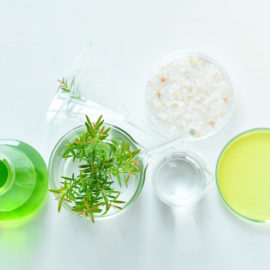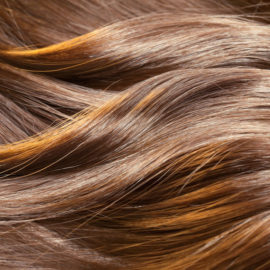The clean beauty movement has grown from a focus on free-from claims and natural ingredients to a wider set of ecological and ethical concerns. Consumers’ desire for every aspect of their life to be healthy embraces the clean concept, which in turn, means they want full ingredient transparency. Beauty and personal care customers want a comprehensive understanding of the safety, quality, and eco-ethical profile of each and every ingredient.
This is especially the case in the wake of the COVID-19 pandemic. Consumers are more concerned about health, hygiene, and safety than ever before. Looking to the future, we can expect to see clean beauty brands demonstrating the scientific rigor behind product development, with full ecological and ethical ingredient transparency. Post-pandemic, it will be this clear commitment to clean that will set brands apart.
Content
The growing demand for ingredient transparency
The coronavirus crisis is the catalyst for the expansion of the clean beauty movement. However, the importance of this tendency should also be emphasized looking to the medium and long term. Currently, millennials and Gen Z are positioning themselves as one of the most powerful consumer segments. Right now, Gen Z alone has $143 billion in buying power, without even accounting for the influence they have on household spending.
These younger generations have already demonstrated their investment in the clean concept. A 2016 survey titled the Green Beauty Barometer found that 62% of American millennials read ingredient lists on beauty product labels in order to avoid specific additives. After the coronavirus crisis, market research suggests that the clean beauty movement will evolve to be more closely connected to health. Equally, it will be more driven by ingredient transparency, with more robust information and certifications than merely ‘free from’ claims.
Clear and clean certification
This expansion of clean isn’t merely about appealing to younger consumers – it’s a crucial exercise in public relations. Millennials and Gen Z want their beauty to be clean, environmentally friendly, and ethical. In the US, 65% of younger millennials believe brands should speak up on social issues and half of all American adults would boycott a brand they believe to be unethical (Mintel, 2020). Considering young adults’ power and presence on social media, it’s vital brands embrace full transparency to appease this influential customer segment.
This is why organic, ethical, or cruelty-free certification is an essential tool for brands striving for full disclosure. Programs such as COSMOS organic certification clearly communicate standards to consumers, providing critical reassurance that products are really all-natural and ethical. Considering the increasingly delicate status of consumer confidence and concerns about safety in the context of the global pandemic, recognizable certifications such as these are key.
Provital’s Eco line
Every one of Provital’s Eco range products is COSMOS organic certified. This means that from sourcing, manufacture, through to marketing, every Eco line active and extract meets the program’s exacting requirements. With this certification, our clients – and in turn consumers – can be confident that the ingredients in their cosmetics and skin care are safe, clean, and green. Considering the current drive towards greater ingredient transparency, brands can take a decisive step in the right direction by choosing COSMOS-certified ingredients.
No comments yet
There are no comments on this post yet.





Leave a comment